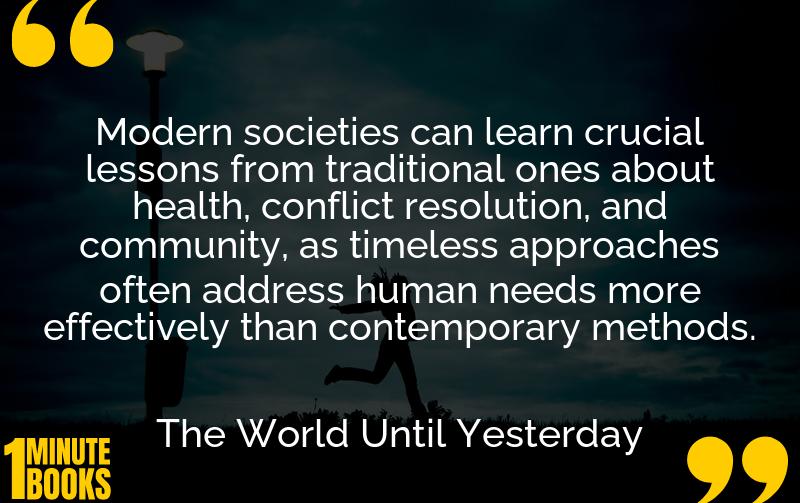
Jared Diamond’s ‘The World Until Yesterday’ explores tribal societies’ cultural practices, offering insights Western societies might learn from, particularly about justice, child-rearing, and handling the elderly.
Main Lessons
- Traditional societies offer a glimpse into how humans lived before nation-states, providing alternative solutions to human conflicts.
- Friendship and enmity in tribal communities are defined by tribe membership and relations with other villages.
- Tribal justice emphasizes compensation and reconciliation due to close-knit community ties.
- Intertribal wars arise over land and resources, often lasting longer without a centralized government.
- Tribal child-rearing practices vary significantly, with some emphasizing community involvement in upbringing.
- Skin-to-skin contact is common in tribal child-rearing, often involving carrying infants throughout daily activities.
- The role of fathers in child-rearing is limited as they typically engage in hunting and provision.
- Elder treatment ranges from reverence to neglect, impacting how societies manage aging populations.
- Constructive paranoia helps tribes manage ever-present dangers, balancing caution with rational fears.
- Religion in tribal societies offers explanations for natural phenomena, meeting universal human needs.
- Western dietary influence has introduced diseases like diabetes to previously healthy traditional communities.
- Diamond highlights areas where modern society could improve by adopting certain traditional practices.
- Despite Western advances, examining tribal customs reveals senseless aspects of modern living.
- Diamond’s writing has faced criticism for its impersonal style, yet presents engaging, thought-provoking content.








